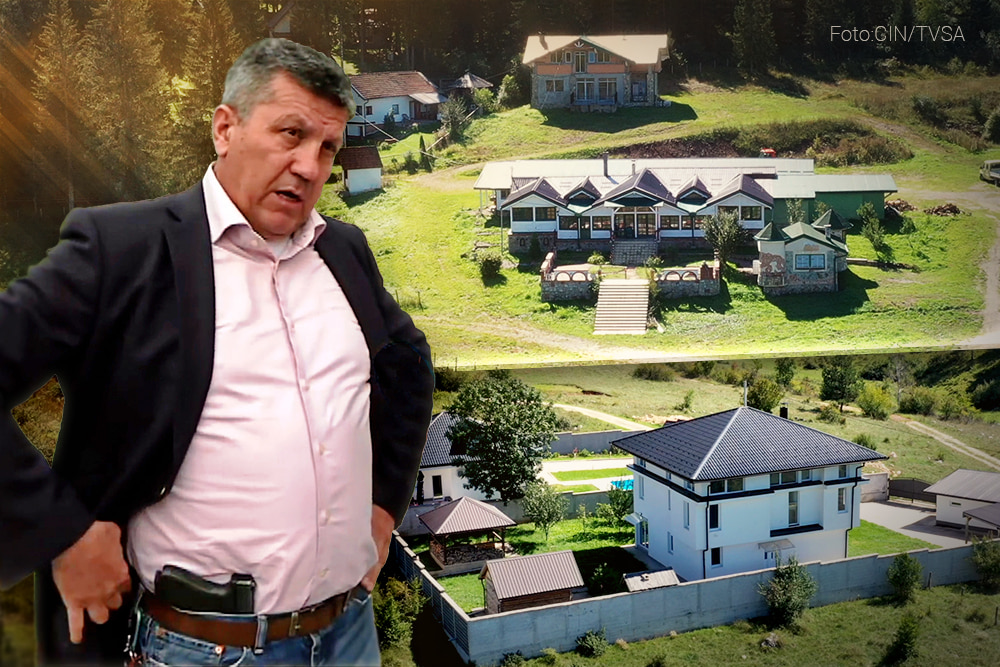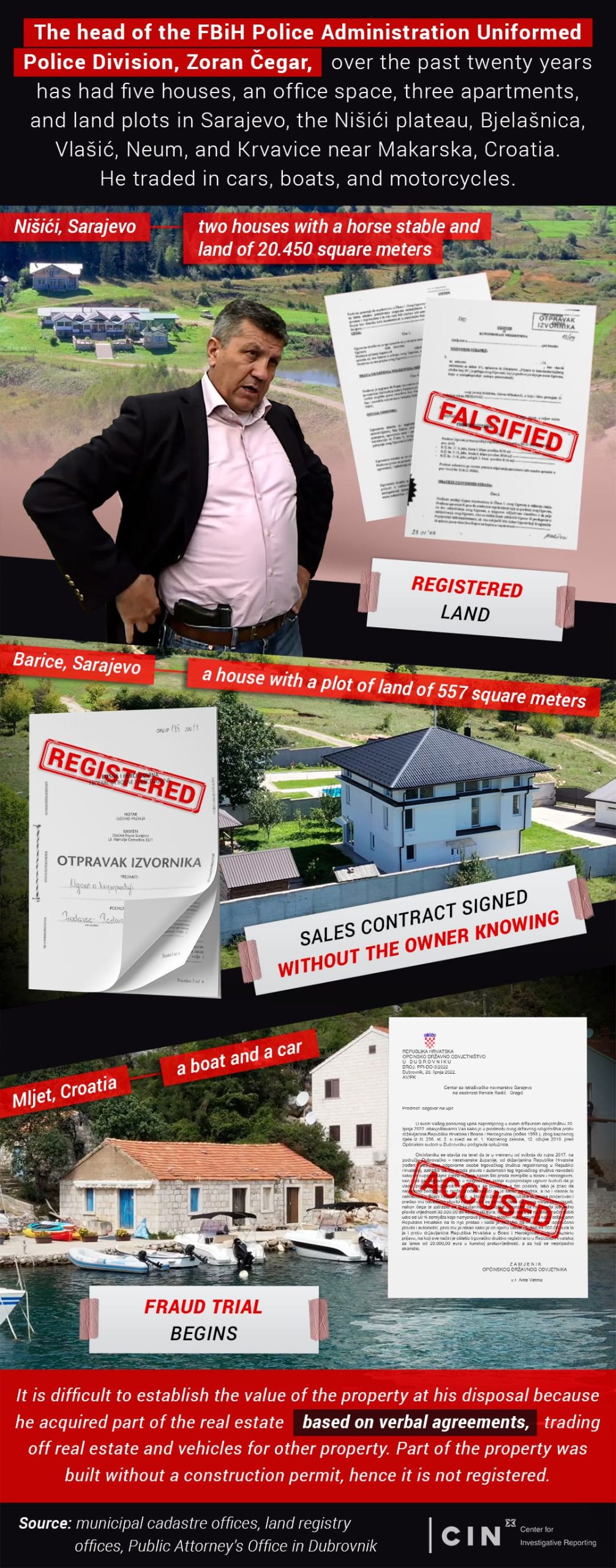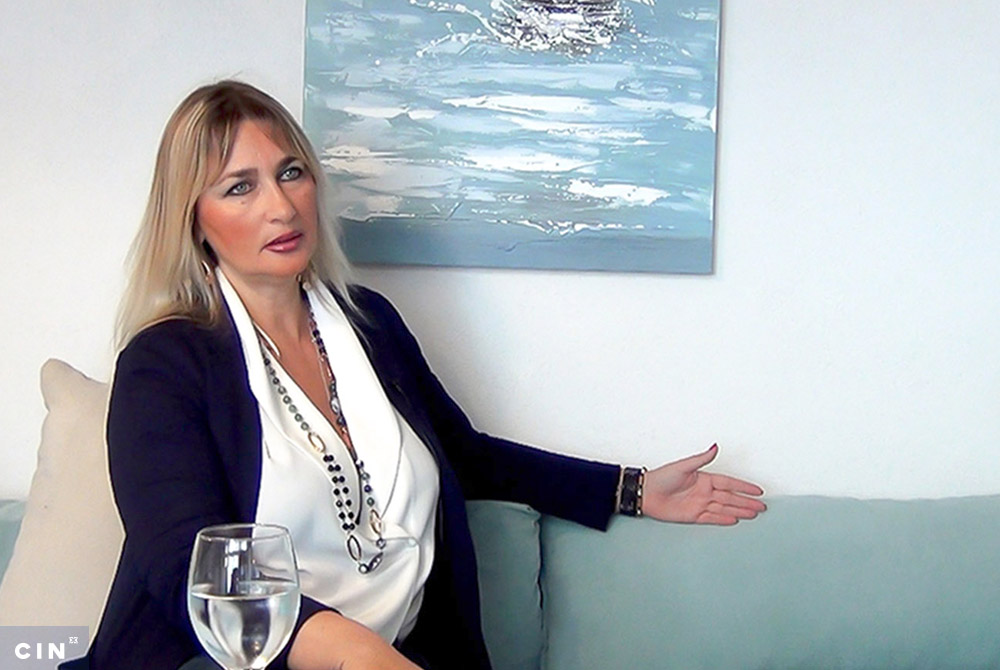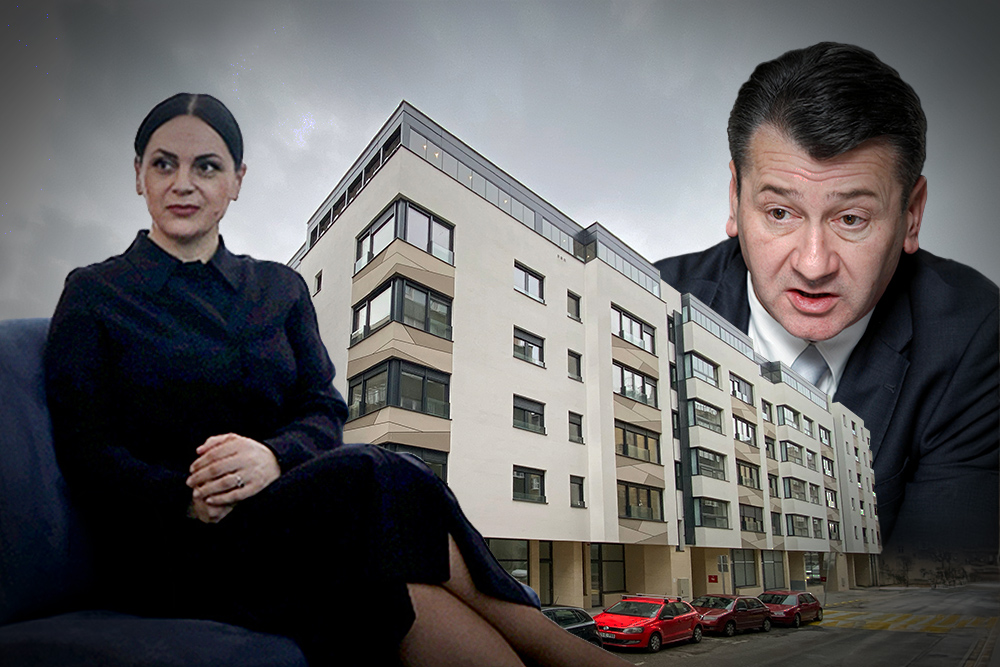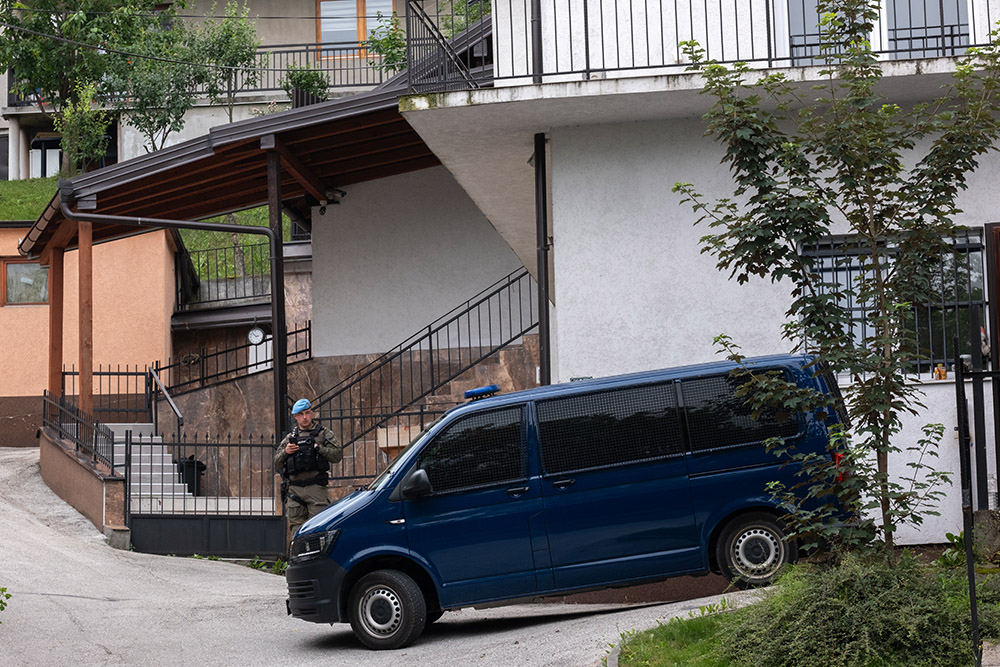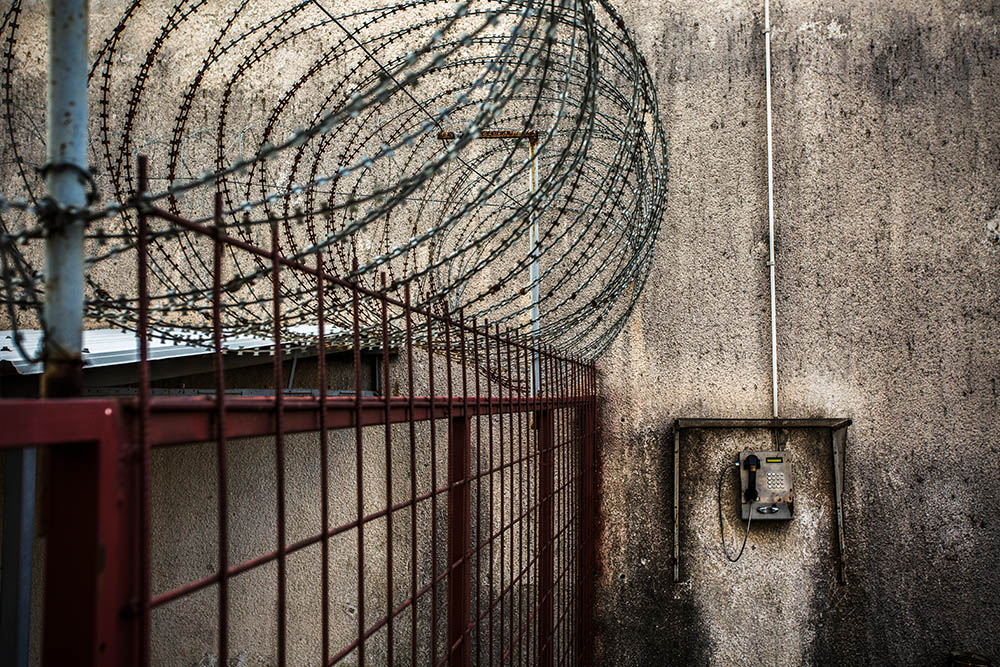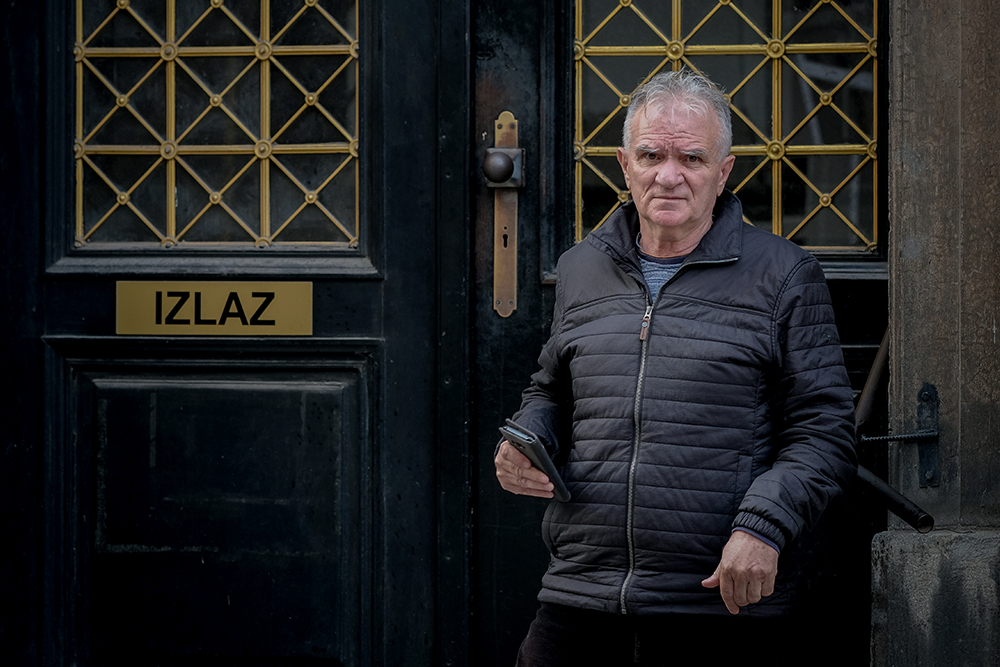- Čegar is accused of damaging a company from Mljet for 20 thousand euros.
- Dragan Vikić sued Čegar for usurping his property.
- Čegar appropriated the property in Barice without the owners’ knowledge.
- Čegar deeded to himself the real estate on the Nišići plateau based on falsified documents.
Zoran Čegar describes himself as an overbusy copper, but his action record paints a picture of a much more peculiar personality. In addition to being known as the long-time head of the Uniformed Police Division of the FBiH Police Administration (FUP), he also proved to be a hard-bitten realtor.
Over the past twenty years of the service, he acquired several houses, apartments, and land holdings in Bosnia and Herzegovina (BiH) and Croatia, and his possessions also included several cars, boats, motorcycles, and snowmobiles. He often traded without money, bartering his property for other people’s real estate and vehicles. His partners colloquially call it trange-frange affairs, the logrolling.
Over time, he has been selling or exchanging part of his property for others, and today he is the owner of a luxury villa and multi-story house in Sarajevo, apartments in Bjelašnica and Neum, and huge land holdings with several buildings on the Nišići plateau. Some of his properties are not registered because they were built without building permits.
Instead of adhering to the established procedures, this police officer did not shy away from unusual and illegal actions in his real estate transactions.
CIN found that some of the properties were acquired using fictitious contracts and forged documents, and some business partners claim he had deceived and blackmailed them and are now seeking justice for themselves in the courts. Those who did not agree to such a trade were faced with Čagar’s threat suits or were threatened by police investigations.
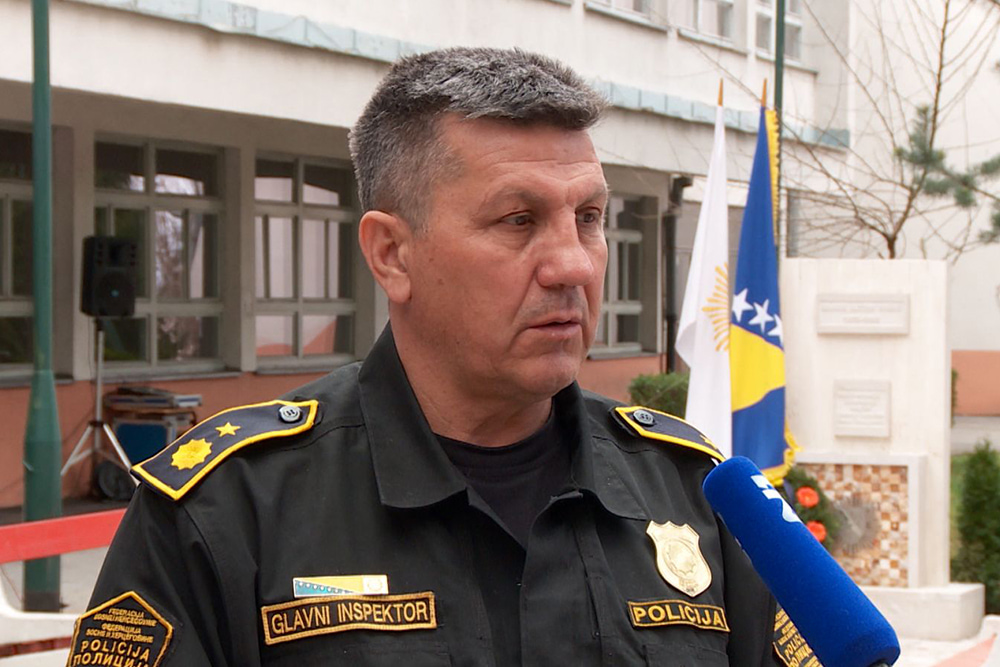
Indictment for fraud in Mljet
At the end of October, Zoran Čegar, who is charged with fraud by the Municipal Public Attorney Office in Dubrovnik will stand trial before the Municipal Court in Dubrovnik, Croatia. According to the Public Attorney’s Office, he damaged the boat and car rental company “Prožura” from the island of Mljet, owned by Darko Marković, for 20,000 euros.
The indictment was filed back in 2019, but FBiH Minister of the Interior Aljoša Čampara and Acting Director of the FBiH Police Administration Ensad Korman say they do not know anything about it, even though Čegar was obliged to inform them.
“I think he should be immediately suspended from his position,” says Čampara.
According to the Public Attorney’s Office, in mid-2017, Čegar asked Marković i.e., company “Prožura” to sell him a car and a boat. He committed to paying for it as soon as he sold the land in Bosnia and Herzegovina, even though he knew that he was not the owner, but only the possessor, and promised to reward Marković if he kept his name out of the contract. He wanted to cover up the trade, explaining that he was a high-ranking police officer and he did not want to be associated with this business transaction.
Marković believed him and handed over the boat and the car, with a power of attorney authorizing Čegar to dispose of the property. Instead of paying 20,000 euros, Čegar asked to buy another vessel for 40,000 euros, offering in return a share of land in BiH, but Marković refused and asked for the money for the boat and car that were already in Čegar’s possession.
According to the Public Attorney’s Office in Dubrovnik, Čegar retaliated by filing a criminal complaint in Bosnia and Herzegovina, claiming that Marković actually owed him 44,000 euros.
CIN journalists found Marković in Mljet, but he did not want to talk about this case because he is a witness in the proceedings.
Under the Criminal Code of the Republic of Croatia, a fraud that incurred great material damage such as the one for which Čegar is charged is punishable by a prison sentence of one to eight years.
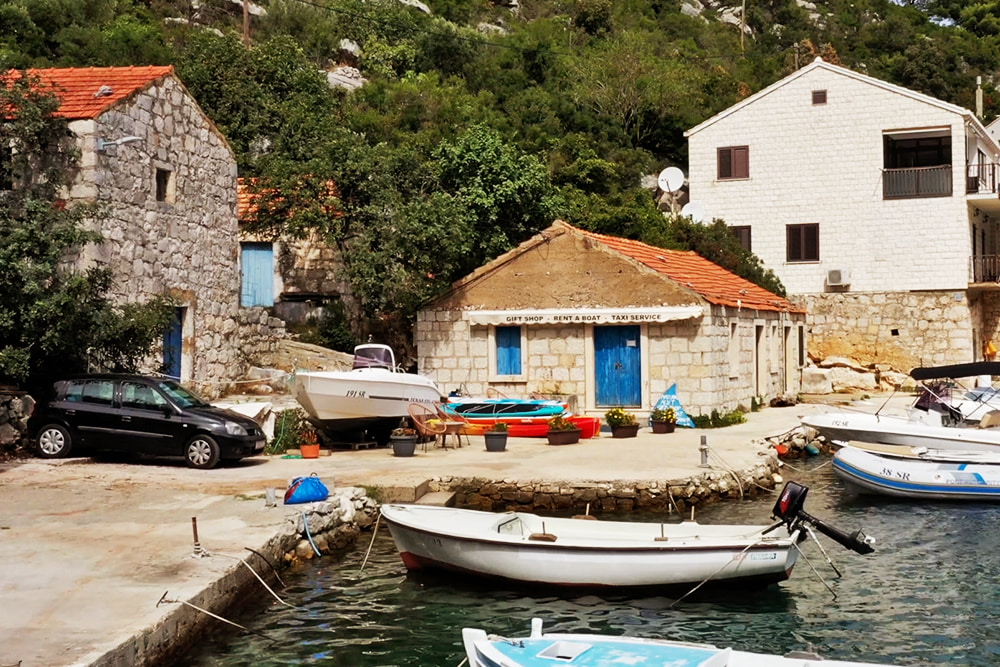
Vikić vs. Čegar
This officer started leaving traces of unusual business deals and transactions in other people’s property well before the event described in the Dubrovnik indictment.
A few years after the war, he and his former friend, former commander of the FBiH PA Special Police, Dragan Vikić, bought some land on a forested plateau of Nišići, about 40 kilometers from Sarajevo, where they both built cottages. The land was cheap, so they wanted to increase their holdings.
In 2002, Vikić bought 1.8 dunums of land from Hamdija Smajić, who was authorized by the owners to trade their land. As indicated in the court papers, he did pay for the property, but the parties did not draw up a contract, so he never deeded this piece of land to his name.
Čegar too negotiated with Smajić the purchase of 23 dunums of land. After the verbal agreement, he drew up a contract in which he also included the plot Smajić had earlier sold to Vikić. The contract was signed, and he soon deeded the land to his name.
Having realized that he had been double-crossed, Vikić sued Čegar for trespassing, but even after litigation before the Sarajevo courts, he failed to prove his ownership of the land. Although it was established that he had paid for it, Vikić did not have a contract to confirm this. Therefore, he could not even prove that Čegar stole his land.
Smajić testified in court, claiming that he was misled and that he intended to request the annulment of the contract, but gave up because Čegar promised him in return, to buy more land from him. That did not happen, and Čegar later sold the plot in question.
Dragan Vikić was not in the mood to talk about this case, claiming that it was the water under the bridge. “I told him 20 years ago to go stuff himself with that land, and that we were over. Done,” he told CIN.
Friendship lost over half a million BAM
Fifteen years later, in 2018, another friendship ended due to disputes over real estate and mutual lawsuits for fraud and threats. Once again, Čegar was summoned before the court – this time because of the documents based on which he registered as the owner. His family friend, Sarajevo dentist Zlatan Radovanović, and partner in the car dealing Kenan Krasnić Klanfa were selling a villa and land in Barice above Sarajevo.
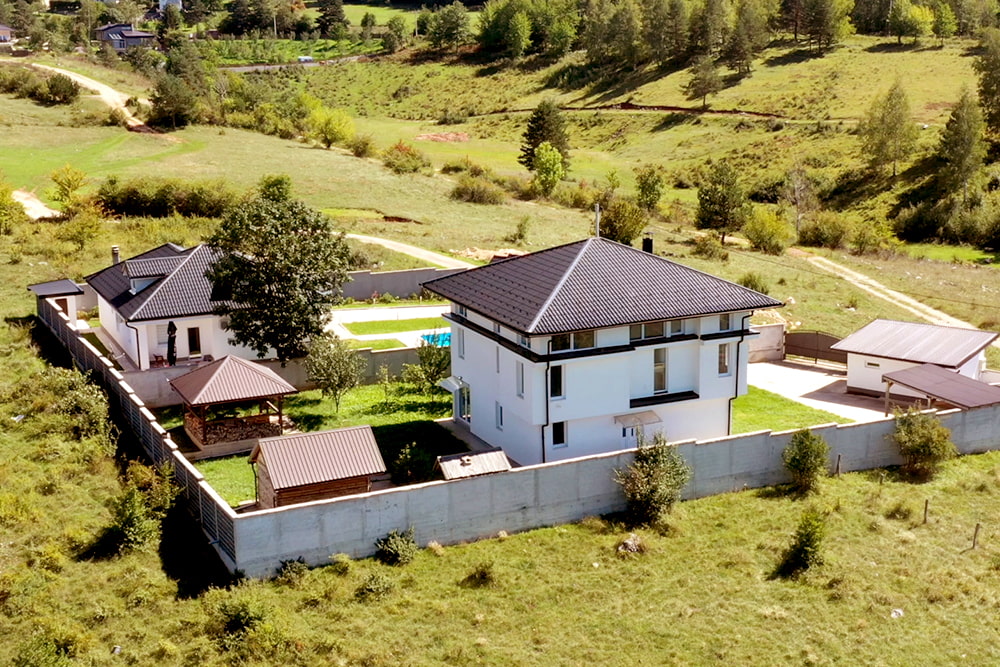
Radovanović was the owner of the land on which, with his consent, Krasnić was building a house. The building was nearly completed when Krasnić agreed with Čegar to sell it for half a million BAM. Čegar said that he had no money but that he could barter it for other things. At the trial, he claimed that he had given what was asked of him.
“I had 15 dunums of land in front of his house on Obhodža, on Dariva (part of Sarajevo, author’s note), I had 15 dunums of land, he asked me, and he got it, of course. He asked me for office space in Vlašić, 110 square meters, and he got it. He got a G-class Mercedes, an E-class Mercedes, and a boat with a trailer,” Čegar said, claiming that Krasnić subsequently asked him for more. “He asked for the Toyota and a snowmobile.”
The deal was made, but soon problems started surfacing.
Namely, the business premise in Vlašić and the land in Sarajevo that Čegar offered in exchange were not at all registered to him.
“Zoran Čegar gave me five properties, none of which had [title] papers, and I could never deed them. The only thing I got from Zoran Čegar that I could register in my name was a G-class Mercedes”, said Krasnić in court and explained that the vehicle was worth BAM 90,000. Radovanović claimed that he did not accept anything in exchange.
Authorizing, and then crying for help
While trying to settle the bill in this expensive trade without money, Čegar got the keys to the villa and immediately started decorating the interior. Radovanović claims that in mid-January 2018 he gave him a power of attorney authorizing him to transfer the electricity connection, but it turned out that the power of attorney contained another very important detail.
Namely, the notary Dževad Pazalja notarized the text that began with authorizing Čegar to legalize the building and connect it to the utility infrastructure, while the second part of the document authorized him to sell real estate and transfer the rights from the power of attorney to a third party.
Sarajevo notary Bojan Marković says that this is not the regular procedure.
“It is logical that the subject of the legal transaction is specified at the very beginning of a power of attorney. You would say, he is hereby authorized to sell the real estate, sign the sales agreement, etc. Connection to utility infrastructure is a secondary matter in this power of attorney”
Radovanović claims he did not read the power of attorney before signing, believing that it only related to the connection to the power grid.
Twenty days later, Čegar returned to the notary and transferred the power of attorney to his friend Selma Filipović, a professor at the Faculty of Veterinary Medicine from Sarajevo. On the same day, professor Filipović sold the property, on behalf of Radovanović, to Čegar for 50 thousand BAM. Based on this contract, he deeded the property in his name.
When Radovanović found out about it, he prompted his wife Dijana to take legal action to annul the power of attorney and the contract, considering that the property in question was a joint marital property and was sold without her knowledge.
In the meantime, Pazalja lost his notary license due to misconduct. Neither he nor Filipović wanted to talk to CIN journalists, but she confirmed that she stood by the statement she made in court: she said that she and Čegar “ran into each other at the notary’s office”, where she got a power of attorney and signed the contract. She claimed that everything was done in a hurry, that she did not know the Radovanović couple, and that she did not take the money.
In court, Čegar refused to say in which legal capacity he hired Filipović.
“I’m not a lawyer, I’m a copper, a gendarme”, Čegar said, adding that he didn’t even read the documents he signed. “I don’t read, I just sign”.
A verdict in the case is expected by the end of the year.
In a short telephone conversation, CIN journalists asked Čegar for an interview, but he refused the interview with threats and curses. Alluding to his position, he said that “various people kept him informed” about journalists’ whereabouts and work: “I know everything, I’m not running a tobacco shop”.
He ended the conversation by saying: “Don’t even think about calling me again, do not make me come where you call me from.”
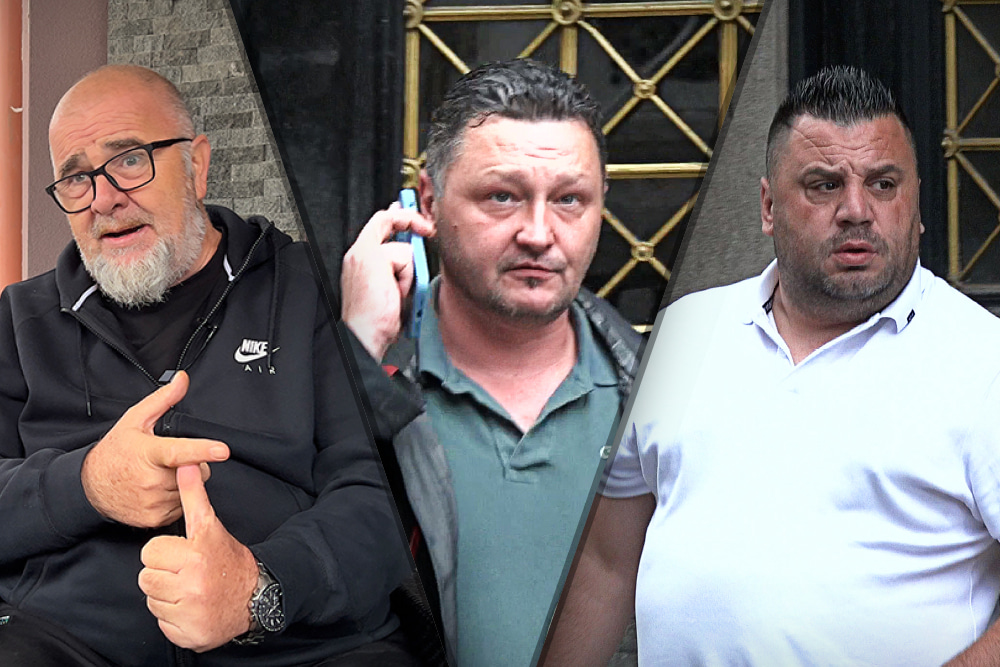
Expensively paid space in Vlašić
Similar to other transactions, Čegar left a complicated trail of intricate agreements on the exchange of material goods in Vlašić as well. The office space, which he offered as a trade-off for the purchase of the property in Barice is located in the Babanovac mountain center building. The police officer got it in 2015, after allegedly having invested BAM 180,000 worth of material in its construction. He agreed to pool the funds with investor Nermin Šabanija from Sarajevo to construct the building, be he never registered ownership of the business space.
Šabanija told CIN journalists that he had actually concluded a fictitious contract with Čegar and that he was only a nominal owner of the property. He promised to explain this business relationship to journalists in a later conversation, but he no longer answered calls.
A few years later, this space was bought by Omer Haračić from Kakanj, who claims to be Čegar’s friend, whom he worked with before in the car dealing business.
He did not mind that the property was not registered to Čegar, but he did mind the price he paid for it. This dealer claims to have paid BAM 120,000 in good faith, believing that the real estate will be deeded to his name, but Čegar asked for more. He asked him to pay off the debt of a mutual friend.
To settle the debt which, as he said, he had nothing to do with, in addition to the money already paid, Haračić gave Čegar a snowmobile, two cars, and a boat. According to his estimate, the real estate in Vlašić cost him BAM 230,000. Haračić says he was blackmailed.
“Better wounded than dead, I said to myself.” Once you’re in, there is no looking back (…) No normal person can understand that. It’s all about some trade-offs. I gave you this, you gave me that, I did not transfer it… You did not … It’s all a logrolling”, explains Haračić.
Čegar’s estates in Nišići
While fighting a legal battle with the Radovanović family, Čegar sought to increase his property on the Nišić plateau. This time, one of the most attractive properties in this area caught his eye – the property of Mehmedalija Žmirić’s once-successful Sarajevo company “Volving”.
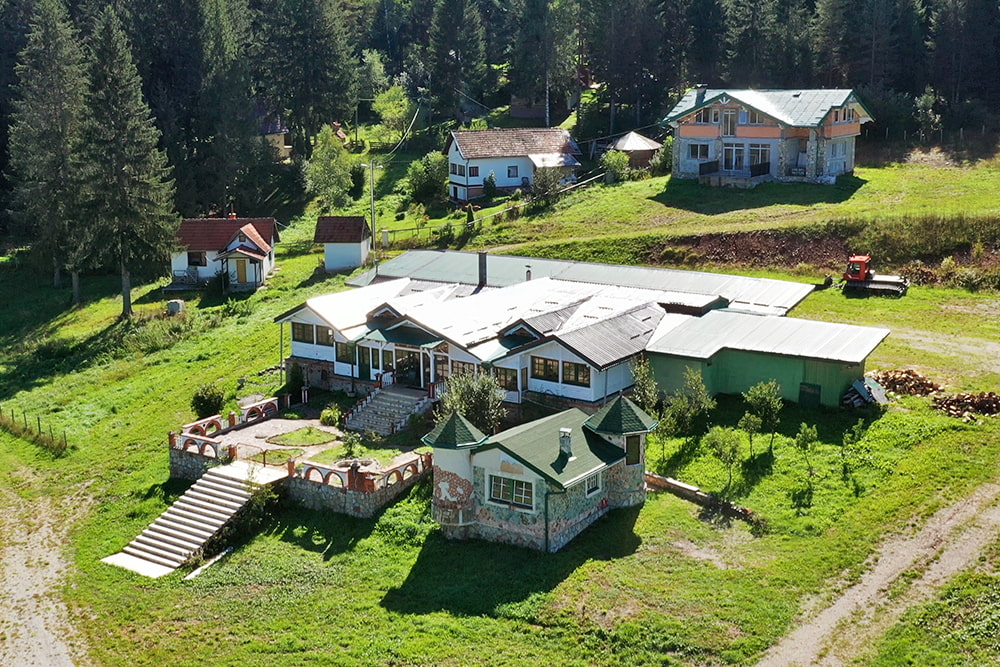
Žmirić built two houses and a horse stable on the estate. He built an artificial lake and planned to develop a villa settlement for embassies. However, the mighty Volving found itself in serious trouble in 2011.
Due to outstanding debts, the court blocked the assets of the company in Nišići. As Žmirić’s empire was falling apart, Čegar recognized the opportunity for a cheap purchase. The owner of Volving claims that Čegar approached him with indirect threats.
“It was an armed purchase”, says Žmirić, remembering how Čegar “warned” him that someone might put something on his property and that he had heard rumors about him growing marijuana.
“While I’m here, don’t worry, I’m the fourth man in the country, don’t you worry”, Žmirić recalls Čegar’s words.
At first, they agreed that Žmirić would sell only a smaller house for BAM 150 thousand, but Čegar then asked for a larger one, along with a horse stable.
Although the real estate worth BAM 350 thousand in construction material only was worth far more, after bargaining, Žmirić agreed to BAM 250 thousand for both houses because he urgently needed money. They made the deal, but have not signed the contract. Žmirić now claims that Čegar paid him only BAM 50 thousand.
After the collapse of the company, the owner of Volving moved to Germany with his family. He says that his wife once tried to take her private belongings out of the house in Nišići, including three valuable fur coats and the company seal, but Čegar did not allow her to do so. He told her that she had no business there, that the house had been robbed and that someone had taken all the things.
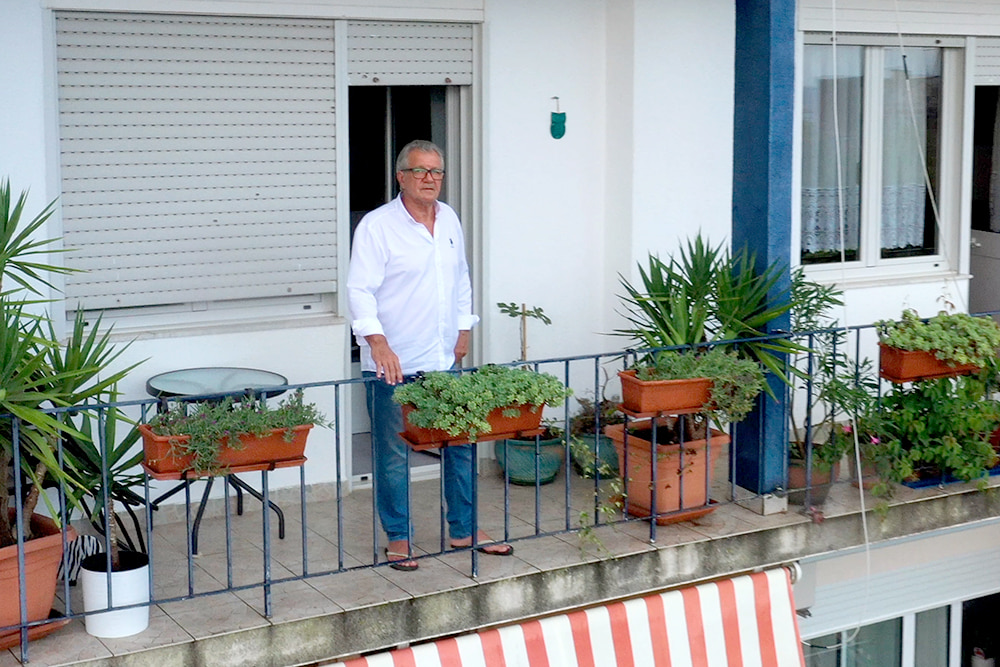
“We said that we should then report it to the police then”, said Žmirić, but Čegar replied that he had already done so.
The Ilijaš Police Department told CIN that in the past five years, no one had reported any burglary and theft in the house of Mehmedalija Žmirić and “Volving” in Nišići.
With a fake contract to an expensive property
The property with two houses and a horse stable is located on three plots with a total area of 20 dunums. According to the land records, the plots are the property of “Volving”, and the buildings are chartered in the cadastre maps.
Journalists found in court documents that in April 2019, Zoran Čegar tried to register this land in his name, attaching a sales contract that he allegedly signed a year earlier with Radoje Ćetković, the former owner of the land. The document was signed and stamped by a public notary Gorica Milenković from Loznica in Serbia.
However, the court declined his request because it found that the owners are neither Ćetković nor Čegar, but Žmirić “Volving”. In addition, the presented contract being processed before a foreign notary was also unacceptable to the court.
The things that caught the eye of Sarajevo court officials went unnoticed by Cadastre officials in Ilijaš Municipality, where Čagar registered as a possessor, presenting the same contract.
CIN journalists sent a copy of this document and accompanying documentation to the notary office of Gorica Milenković in Loznica, and they forwarded them to the Public Notaries Chamber of Serbia for comment. Chamber spokeswoman Gordana Lazarević says that the documents were not drawn up in any public notary office in Serbia. At the time indicated on one of the documents, notaries did not even exist in this country.
“Starting with this power of attorney, which was certified in 2010, when the Law on Public Notaries had not yet been adopted in the Republic of Serbia. The first public notaries started operating on September 1, 2014”, says Lazarević.
According to her, the appearance of the seal, the language and the script of the document in which the word “ured” is used instead of “kancelarija”, and the letter being written in Latin, which is not in official use in Loznica are also arguable.
The Chamber concludes that “it is a gross forgery.”
The man with two names
When the war broke out in Bosnia and Herzegovina in 1992, Zoran Čegar left for Germany, where he stayed for the next six years. He leaves Germany for Australia, where he obtained citizenship in the name of Tommy Brown. He returned to BiH in 2001.
Before the war, he worked for a short time in the police, so in 2003 he returned to the service. He was immediately appointed commander of the Special Police Unit in the FBiH Ministry of Internal Affairs, but in the same year, he was relieved of his duties at his request and transferred to the position of expert advisor for economic crimes, corruption, money laundering, and cybercrime.
In 2006, Čegar became an investigator in the same department, and then head of the Department for Detention, Raids, and Searches.
However, in the middle of 2007, based on the Australian passport he still used, the Police discovered that Čegar had a double identity, after which he was dismissed.
Next year, he retired based on disability, but not coming to terms with it, he sued the police. The court found that not all the procedures were complied with in his dismissal, so the police canceled the decision on dismissal and reinstated Čegara. Today, he leads the Uniformed Police Division and chairs the Appeals Committee, which is responsible for deciding the appeals regarding appointments, promotions, and other labor-related disputes in the FBiH Police.
In recent years, several disciplinary reports were filed against Čegar for violent conduct against colleagues and citizens, but the Internal Control declined them all due to lack of evidence. One of the most recent reports was for slapping a worker of a Sarajevo parking company. The Sarajevo Canton Ministry of the Interior notified the Cantonal Prosecutor’s Office about this, stating that the officer had committed a criminal offense. The prosecution has not yet made a decision in this case.

